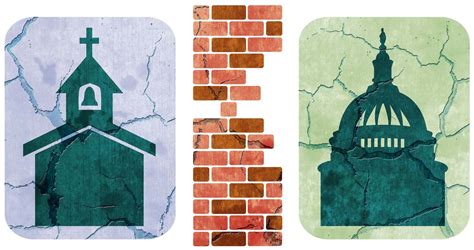Scripture: Romans 13
Background:
In society the state ought to manifest God’s Kingdom as “righteousness in the administration of justice.” Those in proper authority have the calling to establish and enforce human ordinances (I Peter 2:13). It is in this connection that we witness the terrifying struggle of millions in the United States for “civil rights.” This struggle has been called by some a race war. This civil rights movement, designed to enhance the legal and social position of the colored segment of the population, presents many problems, some of which arc within the scope of this discussion outline.

Outline:
1–How are church and state related?
Government has the sword-power by divine ordinance (Rom. 13), and even though it is pagan (as in Rome during the ministry of Paul), it must be obeyed. The church does not have the power of the sword hut the power of tile keys: the Word and discipline (Matt. 16:19). The church does not compel by means of physical power. Us only weapon is preaching and witnessing (Matt. 28:19, 20). Knowing the fear of the Lord, the church moves men to faith (II Cor. 5:11), for it is not satisfied with mere external compliance. It insists upon a real change of heart.
The discipline of the government is limited to this life, but the discipline of the church reaches into heaven (Matt. 18:18). Church and state borrow their authority from Jesus Christ who is King of kings, and in no wise from each other. Even though the church is the Lord’s peculiar treasure, she may never lord it over the state. And even though governments have and may resist those who seek the true Church, we must unite with that church, obeying God rather than men.
Questions for discussion: Should congregations “force” their members to support certain causes by way of general budgetary allocation? Should churches put pressure on the state by way of political maneuvering or widely-publicized pronouncements? May the church use social or economic pressures to enforce its will upon people? Is the power of the Word equivalent to the power of the sword for effectiveness? What determines the rightness or wrongness of obedience or rebellion against the state?
2–What may the church expect from the state?
The state must allow the church to do its own work: the training. calling and deposition of its office-bearers; the fulfillment of certain ecumenical obligations (Eph. 4); the administration of Word and sacraments; the carrying out of missions and evangelism; the exercise of Christian charity (Jas. 1:27). In obedience to Christ who is Head over all, the state must allow room for the church among the people.
Paul points out in Romans 13 that the state ought to administer justice in the general interest. The church may demand no more than recognition of its own sovereign rights. The government must respect the rights of the several “denominations,” establish and enforce laws with respect to the protection of life and health in public buildings. The church may on occasion admonish the government; the state may call upon the church for thanksgiving and prayer in time of war. calamity, victory, etc.
Questions for discussion: Does the Roman Catholic Church have good reason to demand that the state punish heretics? May the state allow a certain church to side with the enemy in time of war? Would it be proper for the government to allow a given religious group to maintain and propagate Communism? May a church demand the right to worship in a manner which disturbs the peace and quiet of a community?
3–What do we mean by “separation of church and state”?
By “separation of church and state” we do not mean that the state is an institution possessing some kind of neutrality. but that it should not oppress the church, nor the church it. Whenever the state meddles in church matters you have persecution. Confusion and misery always follow when men overstep the boundaries of proper authority.
Questions for discussion : Does “separation of church and state” rule out government aid to schools? What educational philosophy ought state-supported schools to teach? What view of the origins of things? May the state demand of the church that certain members be punished by the church authorities? May a church keep its criminal offences within its own circle without report to the government?
